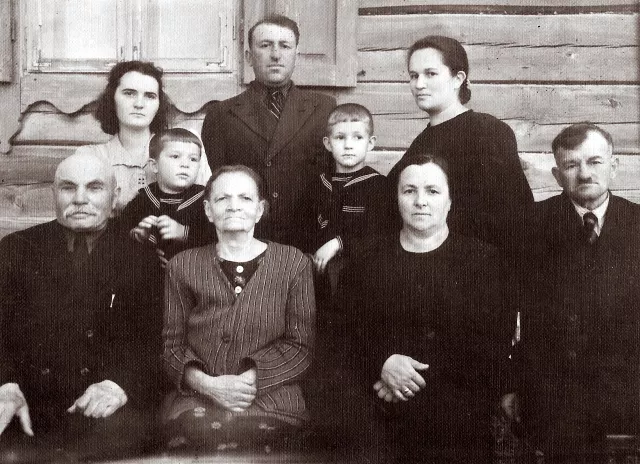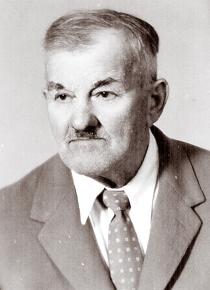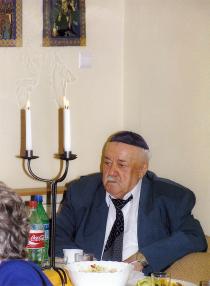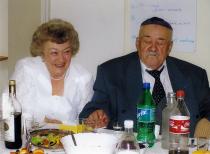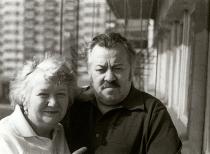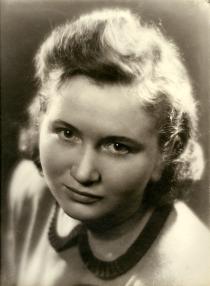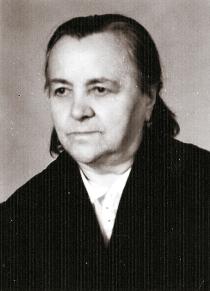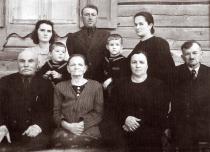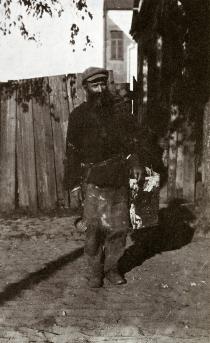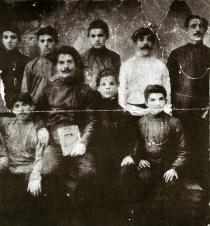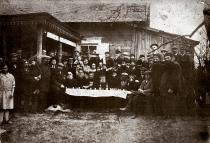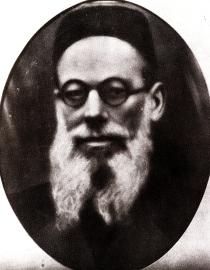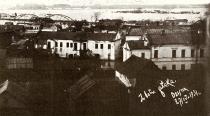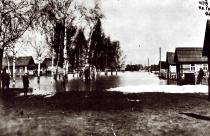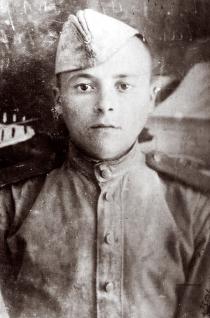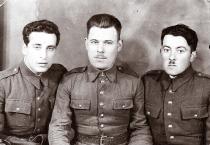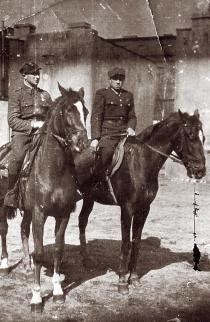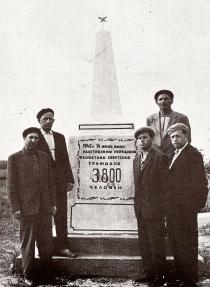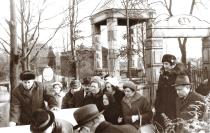Szlome Solowiejczyk's family
This is a photo of my father's family. The photo was taken in a small town called Oszmiana in 1944 or 1945. In the photo you can see my parents: Szlome and Chaja Pesia Solowiejczyk. They are sitting in the lower row from right. I don?t recognize the other persons.
My mother was born in 1900 in Dzisna. She had two brothers: Icchak and Abraham and two sisters: they were Choda and Roza. Mother was the oldest one; Icchak was some two or three years younger. They all went to school, they could read and write. So could my parents. My father, this was still in tsarist times, he had what they called 'gorodkoye uchylyshche' [Russian: municipal school], I think it was an elementary education. I'm sure Mother must have had at least four grades of school too.
My parents met on their own, without a matchmaker, in Dzisna, it was a local love affair, they were neighbors. They got married in 1922. They had three sons. I was the oldest one. Then there was Izrael. He died in 1945 near Kielce, on the front, in the Russian army. The youngest one was Mojzesz - named after Grandpa. He's now living in Vilnius.
My parents were more or less religious. They celebrated all the holidays, all the rituals, Sabbath. Lard and other things like that - that was out of the question. The house was kept kosher - there was a spoon for meat, a spoon for milk, a milk pan, a meat pan, all that was observed.
Mother was always at home, she was very resourceful; she had to take care of things on her own, because Father was never there, always on the road. When Father came back home, he had to tell Mother about everything, he had to report it all. When Father was about to come home from work - and Mother didn't know exactly when he'd be back, in the morning or in the evening - she'd get everything ready, keep the stove hot, so there'd be hot food for Father when he arrived. Father was a very calm man. I take after him in being calm and responsible. He was very traditional, he didn't drink, didn't play cards. But when there was some celebration, they'd all gather around him, because he could sing, he knew Yiddish and Russian songs.
